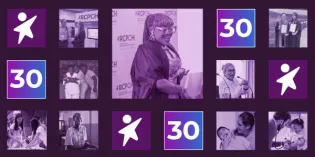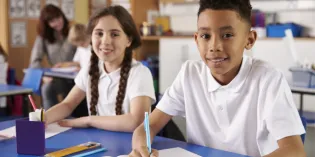Everyone is entitled to being healthy, happy and well, to be loved, not be hungry and be looked after.
In 2022, RCPCH &Us spoke to 500 children and young people across the UK to explore these questions:
what might stop them being well and what can make a positive difference.
Take a look at what they said!
RCPCH &Us…
- Spoke to over 500 children and young people age 7+ on their ideas about staying healthy, happy and well, the things that might prevent this happening for everyone and their big ideas for change
- Gathered comments and input from children and young people from all over the country
- Worked with all ages and all backgrounds all over the UK
- Worked with young people from RCPCH &Us to review the findings to find out key themes (thematic analysis)
- Had the support of a research assistant to quantify the qualitative findings.
You can read the letter above to find out about the themes that stood out for RCPCH &Us. When we got help to quantify the results, we found out that:
- There were 1,718 responses to the question about things that stop all children and young people from staying healthy, happy and well linked to health inequalities. These included:
- 57% of responses that were linked to a lack of money: impacting on not being able to afford food, transport, school costs (eg uniform, trips), technology in the home, clothes, being able to do things they enjoy
- 23% of responses that mentioned those facing hardships: e.g. through family circumstances, where they live, not having a job, pollution, being in unsafe places
- 20% of responses that talked about the impact on different community groups: e.g. having disabilities, being from different ethnic backgrounds, being in homes and families that don’t keep you safe, having a chronic illness, facing discrimination
- There were also LOTS of ideas (3,188!) about how to make improvements for children and young people facing health inequalities:
- 39% of responses stated that having access to free things to do, free food, being given money, having free public transport, free technology or living essentials will make a difference to those in need
- 23% or responses noted the differences that charities make in supporting people and that more resources are needed for schools, hospitals, specialised support and also for research and to provide more jobs or being able to borrow beds
- 18% of responses looked at how to make sure that it was fair and equal for all, such as in the way people are treated, empowering and involving community members and ensuring that they are kept safe and able to thrive
- 12% of responses talked about the things that bring joy to children and young people’s lives such as parks, sports, friends, youth clubs and being able to have face to face medical appointments
- 8% of responses talked about having access to vouchers for everyday essentials or to support holidays and doing social activities.
If you're a paediatrician or child health professional, take a look at our health inequalities toolkit, starting with Improve your understanding of child poverty.
Downloads







